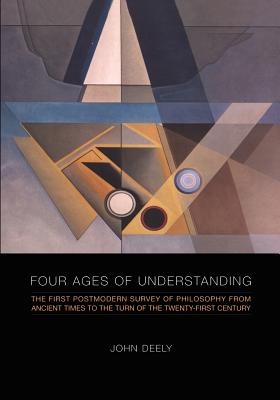This book redraws the intellectual map and sets the agenda in philosophy for the next fifty or so years. By making the theory of signs the dominant theme in Four Ages of Understanding, John Deely has produced a history of philosophy that is innovative, original, and complete. The first full-scale demonstration of the centrality of the theory of signs to the history of philosophy, Four Ages of Understanding provides a new vantage point from which to review and reinterpret the development of intellectual culture at the threshold of "globalization". Deely examines the whole movement of past developments in the history of philosophy in relation to the emergence of contemporary semiotics as the defining moment of Postmodernism. Beginning traditionally with the Pre-Socratic thinkers of early Greece, Deely gives an account of the development of the notion of signs and of the general philosophical problems and themes which give that notion a context through four ages: Ancient philosophy, covering initial Greek thought; the Latin age, philosophy in European civilization from Augustine in the 4th century to Poinsot in the 17th; the Modern period, beginning with Descartes and Locke; and the Postmodern period, beginning with Charles Sanders Peirce and continuing to the present. Reading the complete history of philosophy in light of the theory of the sign allows Deely to address the work of thinkers never before included in a general history, and in particular to overcome the gap between Ockham and Descartes which has characterized the standard treatments heretofore. One of the essential features of the book is the way in which it shows how the theme of signs opens a perspective for seeing the Latin Age from its beginning with Augustine to the work of Poinsot as an indigenous development and organic unity under which all the standard themes of ontology and epistemology find a new resolution and place. A magisterial general history of philosophy, Deely's book provides both a strong background to semiotics and a theoretical unity between philosophy's history and its immediate future. With Four Ages of Understanding Deely sets a new agenda for philosophy as a discipline entering the 21st century.










